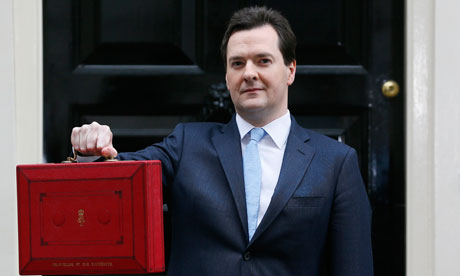If there is one thing that drives financial journalists in the UK to distraction it is celebrities. Every weekend the money pages of newspapers carry interviews with various semi-famous people asking them about how they invest. Every weekend the semi-famous people say they don’t invest in the stock market or save into a pension because it is too complicated. They invest in property instead. Buy houses, they say, and you have something “you can see”: You “know where you are with bricks and mortar”.
The problem with this is simple. You might think you know where you are with bricks and mortar. But the truth is that you probably don’t — unless you have a complete grasp of how population trends, interest rates and political priorities have shifted over the past century and how they might shift again over the next. Just because the period in which most of us have become adults has been one of almost nonstop property price growth does not mean that it makes sense to extrapolate that growth indefinitely. It might not.
The latest Deutsche Bank Long Term Asset Return Study (written by Jim Reid and his team of analysts) takes a proper look at the evidence. It turns out that fast-rising house prices in the UK are a relatively recent phenomenon. They have risen on average 3 per cent a year in inflation-adjusted terms since 1939 (a total of 834 per cent). But before that they mostly fell — 50 per cent in inflation-adjusted terms from 1290 to 1939. These data are obviously not precise — Reid points out that the housing market has changed beyond all recognition over the past 800 years and that the numbers have been collated using “many assumptions”. However, you get the general idea. Perhaps our celebrities should be spending less time assuming their financial future will be the same as their financial past, and more time asking two questions: What changed in the middle of the last century? And will it change back?
The answer to the first question brings us to demographics. The world began to change in 1796 when Edward Jenner introduced the first vaccine for smallpox (the major killer of the time) and so created a dramatic rise in life expectancy and the beginnings of a rise in the number of people in the world: the global population rose by a mere 0.17 per cent a year until 1820 but 0.98 per cent a year from then to 2000 (this rise was what allowed the industrial revolution to happen, by the way). However, it is the past 70 years — the ones most of us use as our map for the future — that have been genuinely dramatic: from 1950 to 2000 the global population more than doubled, from 2.5bn to around 6.1bn.
That has had all sorts of consequences — ones that have long looked mystifying if you don’t understand population but which have looked rather predictable if you do. If you had looked properly at birth rates in the G7 in the postwar period you would not have been surprised that inflation and unemployment rose in the 1970s as the baby boomers began to both “jostle for their first jobs” and to consume global resources on a huge scale, says Paul Hodges chairman of London-based strategy consultancy IeC.
You would have expected stock markets to start to boom in the 1980s as those same boomers moved into their thirties and forties and started to pour cash into investments to finance their retirements. And you surely would have known that all those babies growing up in the affluent stability of the postwar world would want to form their own households and would be encouraged by rising global affluence to want to do so in bigger and better houses than their parents. You might also have noted the political power of the boomers and guessed that the regulatory environment would be shaped to suit them — think tax relief on mortgage payments and no capital gains tax on the sale of primary homes in the UK, for example. And so it began. Demand pushed up prices — and pushed them up even more in low-supply Britain than elsewhere.
As prices rose baby boomers figured that homes looked like a hot tip of an investment and, enabled by the rise of the fiat money system (the final collapse of any link to the dollar to gold in 1971 meant money supply was able to rise with the population), bought more. Nearly half the 2.5m buy-to-let investors in the UK now say they are “pension pot” investors. They own one house to live in and another as an investment. Perhaps, says Reid, “housing is the ultimate population-sensitive asset”. “As a small island with heavy control over new home building, high population growth but limited supply has put massive upward pressure on prices over the last several decades.”
He is right of course. But it is worth noting that the whole thing could never have happened without the full support of the central banks. One of the consequences of population growth was the abolition of a formal connection between currencies and gold, something that has allowed governments and central banks to print money and shift interest rates around as they like. That, in turn, has given us a long period of very low interest rates — which have shoved a rocket booster under house prices. In the UK, the actual monthly cost of buying a home fell dramatically after the financial crisis and has been more or less flat for several years. Even as the price of houses has risen, the fall in interest rates has kept the mortgage cost of buying much the same.
On to the second question: will this all change back? Is it possible that we might be moving into an age of static to falling house prices? It is. Listen to the pessimists and you might think the global population will soon double again. But the rate of growth peaked long ago (in 1968 at just over 2 per cent a year). It is now down to more like 1 per cent. The main driver behind the extraordinary past 70 years is receding: the baby boomers are more likely now to be sellers than buyers. You could argue that the attractiveness of the UK as a place to live means our population will rise indefinitely and so will property prices — but to do so you would have to pile a lot of assumptions on top of each other: that the UK remains desirable; that it remains desirable enough that people are happy to pay a hefty premium for a house in it; and that it remains open to high levels of immigration.
At the same time interest rates are beginning to drift up again. Jim Reid notes that the 1950-2000 period has been “like no other in human or financial history in terms of population growth, economic growth, inflation or asset prices”. It may stay that way.
Worse (for those who want house prices to rise forever), legislation is on the turn. In the UK, the fast rise in house prices has created a class of winners and another of losers. The losers have had enough — and our cash-strapped government is now on their side.
So second-homebuyers have been hit with council tax rises and an additional rate of stamp duty (an extra three percentage points). Buy-to-let investors have seen a sharp reduction in the scope of the tax relief available to them on their rental income as well as a shift in power back towards tenants (in Scotland in particular), stricter affordability requirements on their mortgage applications and a raft of new energy efficiency rules and licensing laws. They also pay capital gains tax at 28 per cent when they sell their properties (it is 20 per cent on everything else). There are also calls for new wealth taxes on all UK property — or sharp rises to council taxes at the top end. All four major UK parties are now showing interest in land value taxes and in scrapping what tax exemptions there are left for property owners.
The recent budget didn’t have much in it, but space was found for two measures — a cut in the capital gains tax relief on houses that were once main residences, and a consultation on a 1 per cent surcharge for non-UK residents buying UK property. It doesn’t look good does it?
So when will the shift to what was normal in the housing market 80 years ago begin? You could argue (and Hodges does) that it began in 2000 as the baby boomers started to shift down — and that the boom since 2009 has been a last gasp of a soon-to-slow market. With the Brexit fog all about us and fallout from the financial crisis still clearing, it is hard to tell what is causing what. But look to London and that makes some sense: prime London house and flat prices are down 30 and 25 per cent, respectively, since their peak several years ago and most data now show nationwide prices rising slightly less than inflation.
There’ll be volatility here for a while — a post-Brexit bounce seems inevitable, for example, and a bout of consumer price inflation is likely over the next decade (you can see it coming in rising wages), something that might make holding real assets such as property not the worst idea in the world. But if prices revert to very long-term means, the period in which all our celebrities have made their property fortunes is going to turn out to have been a huge historical anomaly. I wonder what the ones who are being asked “property or pension” in 30 years will say.





